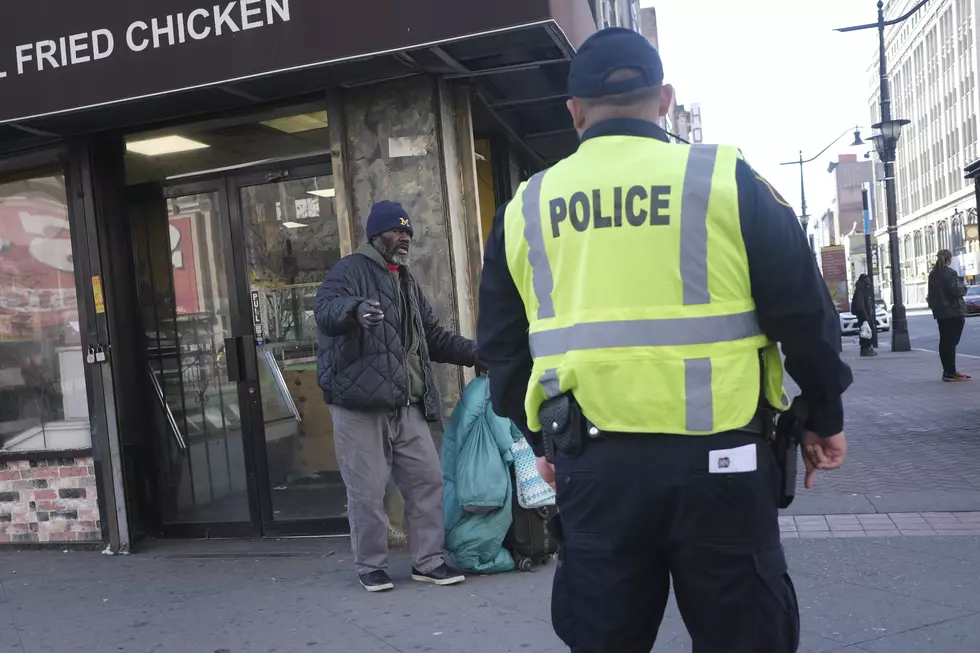
Religious freedom facing increased threats, US report finds
The Islamic State led a campaign of attacks last year by militant extremist groups on religious freedom in large swaths of the world, the State Department said in a report Wednesday, pointing to increasing threats to religious minorities in the Middle East, Africa and Asia.
In the territories of its would-be caliphate, the Islamic State militants forced centuries-old Christian communities to convert, pay a ruinous tax or die, while kidnapping, selling, enslaving and raping thousands of women and children on the basis for their faith. Al-Qaida's Syria branch assassinated several Druze clerics and a Jesuit priest, while Shiite militias in Iraq targeted Sunnis with abductions, torture and execution-style killings.
And they were only among the worst atrocities the State Department catalogued in this year's International Religious Freedom Report.
In Nigeria and neighboring countries, Boko Haram killed more people in 2014 than in the last five years combined, going after Christians and moderate Muslims, and attacking churches and mosques. In Pakistan, terrorists blew up a bus carrying Hazara Shiite pilgrims and committed several attacks on houses of worship and religious gatherings.
Myanmar's Rohingya Muslims faced societal violence and saw land and property confiscated, while Buddhist monks delivered scores of hate-filled sermons and called for a national boycott of Muslim-owned businesses.
"Religious freedom extends way beyond mere tolerance," Secretary of State John Kerry told reporters at a news conference. The concept, he said, "demands that the practitioners of one faith understand that they have no right to coerce others into submission, conversion or silence, or to literally take their lives because of their beliefs."
Where intolerance was the worst, weak governments either looked the other way or proved powerless to prevent the violence. Authorities in many cases didn't bother investigating abuses, let alone arrest and prosecute those responsible for attacks.
But hatred wasn't limited to the developing world.
In the summer of 2014, the report said, countries such as France and Germany faced a wave of anti-Israel sentiment "that crossed the line into anti-Semitism," leaving people questioning the viability of European Jewish communities. Beyond hate speech and desecration, violence occurred, such as when a French Muslim, radicalized in prison, killed four people in the Jewish Museum of Belgium.
Whereas Western Europe's authorities sought to combat hatred, governments elsewhere were directly responsible for religious oppression and violence.
Syrian President Bashar Assad allowed the Islamic State and others to flourish in some areas, while claiming to be the "protector" of Syria's minorities.
In Sri Lanka, the former government appeared to act in concert with Buddhist national organizations attacking other followers of other religions.
Violators of so-called blasphemy laws faced discrimination and even death in Pakistan, while a Saudi Arabian court convicted a young blogger to a decade in prison and 1,000 lashes for "insulting Islam." A Muslim woman in Sudan received a sentence of 100 lashes and death by hanging for committing apostasy and adultery by marrying a Christian man, before the government released her under international pressure.
Iran's government harassed, detained and executed religious minorities and Muslims accused of making "innovations in the religion" and "spreading corruption on Earth."
Christians, Muslims and others faced routine official harassment in China.
The report took particular aim at governments trying to justify religious restrictions on the need to fight terrorism.
Uzbekistan's government broadly banned Islamic groups it declared extremists, without referring any violent activity, and some adherents died in custody. Tajikistan's government arrested individuals involved with similarly banned religious groups or for engaging in "suspicious behavior" such as praying differently at a mosque.
"As much as we oppose the actions of terrorists, we do not agree with governments that use those crimes as a pretext for prohibiting religious activities that are in fact nonviolent and legitimate," Kerry said. "Those who misuse the terms `terrorist' and `extremist' are not fooling anybody."
(Copyright 2015 The Associated Press. All rights reserved. This material may not be published, broadcast, rewritten or redistributed.)
More From New Jersey 101.5 FM









